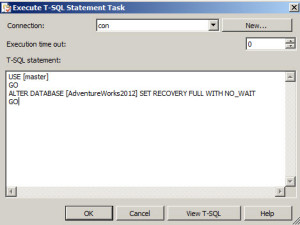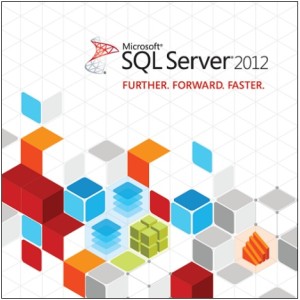Microsoft Virtual Academy: Database Administration
Table of Contents
The Database Administration section of Microsoft Virtual Academy (MVA) is one of the smallest in the entire Academy. It includes only six courses:
- Querying with Transact-SQL (Level 100)
- Windows Server Administration Fundamentals (Level 100)
- Updating your Database Management Skills to SQL Server 2014 (Level 100)
- Upgrading to Microsoft SQL Server 2014 (Level 200)
- Administering Microsoft SQL Server 2012 Jump Start (Level 200)
- Designing Database Solutions for SQL Server (Level 300)
Being in charge of a database can be made a lot easier, using tools like SQL. Microsoft’s experts help database administrators get the training they need for improved solutions. Whether it is installation, configuration, upgrading, administration, monitoring, maintenance or security – these are all tasks which can take up a lot of time and energy. By utilizing the expertise of these top industry experts, database professionals can make their lives a whole lot easier.
In-depth with the two most popular courses on database management: Querying with Transact-SQL, instructed by Graeme Malcolm and Geoff Allix; and Administering Microsoft SQL Server 2012 Jump Start, instructed by Rich Currey and George Squillace.
Course Review: Querying with Transact-SQL
This course acts as an introduction to T-SQL, which is a query language designed to work with data in SQL servers and Azure SQL Database. T-SQL is quickly becoming a basic skill that any database professional will not be complete without.
The topics covered in this course are:
- Introduction to Transact-SQL
- Querying Tables with SELECT
- Querying Multiple Tables with Joins
- Using Set Operators
- Using Functions and Aggregating Data
- Using Subqueries and APPLY
- Using Table Expressions
- Grouping Sets and Pivoting Data
- Modifying Data
- Programming with Transact-SQL
- Error Handling and Transactions
- Recommended Resources & Next Steps
This course has no prerequisites. It is worth 106 points, and runs about 8 hours. There are 13 modules, which include assessment exams and slideshow presentations. There is also a link to the course lab files, which can and should be downloaded by those who wish to make the most of the training.
This is a Level 100 course, which is also meant as a prep course for those who are about to sit for their 70-461 exam – also known as Querying Microsoft SQL Server – on their way to becoming MCP, MCSA, or MCSE certified. This course offers a solid foundation and understanding of Transact-SQL. It has been rated 5 out of 5 stars.
Malcolm is senior content developer at Microsoft. He is a data professional who specializes in Microsoft data technologies. Malcolm is a consultant, trainer, and author, who has been invested in SQL since Server 4.2 (1992).
Allix is a SQL Server specialist, author, consultant, and trainer. He is Principal Technologist at Content Master.
Course Review: Administering Microsoft SQL Server 2012 Jump Start
This JumpStart course, led by two leading Microsoft trainers, helps those who are aspiring to be data professionals (or, alternatively, those who already are) to become familiar with SQL Server 2012, from Microsoft.
This course acts as a preparation course for those who are about to sit for exam 70-462: Administering Microsoft SQL Server 2012 Databases, on their way to Microsoft Certified Solutions Associate certification. This course covers several topics:
- Installing and Configuring SQL Server
- Maintaining Instances and Databases
- Performance Optimization and Troubleshooting
- Managing Data
- Implementing Security
- High Availability Options
- Recommended Resources & Next Steps for Administering Microsoft SQL Server 2012
This is a seven-hour course, which includes seven modules and six assessment exams. It has slideshow presentations of the coursework, which can be downloaded and used to follow the instructors. This Level 200 course is worth 58 points, and is rated 4.5 out of 5 stars.
Squillace is a Senior Technical Trainer for Microsoft, with a focus on database technologies. He has been Microsoft certified since 1997. With 30 years of experience in the IT industry behind him, he has racked up many different Microsoft certifications.
Currey is also a Microsoft Senior Technical Trainer, focused on database and development technologies. He is a Microsoft Certified Solution Expert and Developer, and has worked on ASP.NET development, Windows development, web development. Currey has an extensive background with consulting and Project Management.
Managing a database can be a hassle. Obviously, it can depend heavily on the data professional’s experience and skill, but it can also come down to the tools which are being used to organize and manage the data. Using tools like Microsoft SQL isn’t just about making a data pro’s life easier. That data pro than has the ability to create an environment of industrial peace and quiet for everyone else.
Microsoft Certified Master of SQL, John Sansom, has written that a qualified and skillful database administrator should have attention to detail, be a natural problem solver, cultivate positive relationships, be assertive and tactful, make good decisions, and also be approachable and calm when the pressure is on. It is difficult to be all of those things without the proper tools. If someone is expected to be an excellent database admin, he or she needs to be provided with the way to accomplish the job.
Databases and database management systems have been in use since the 1960’s. As time went on, the technology grew immensely. These days, database admins are sometimes faced with workloads of perplexing proportions. By taking advantage of the tools we have today and furthering one’s knowledge – whether through an online database course or an in-person training session – a good database administrator will have the ability to not only manage those huge workloads with ease and success, but also to deliver them with class and efficiency. These abilities are what turn a good database admin into a great one, a valued one, and one which will surely be noticed for his abilities.




No comments yet.